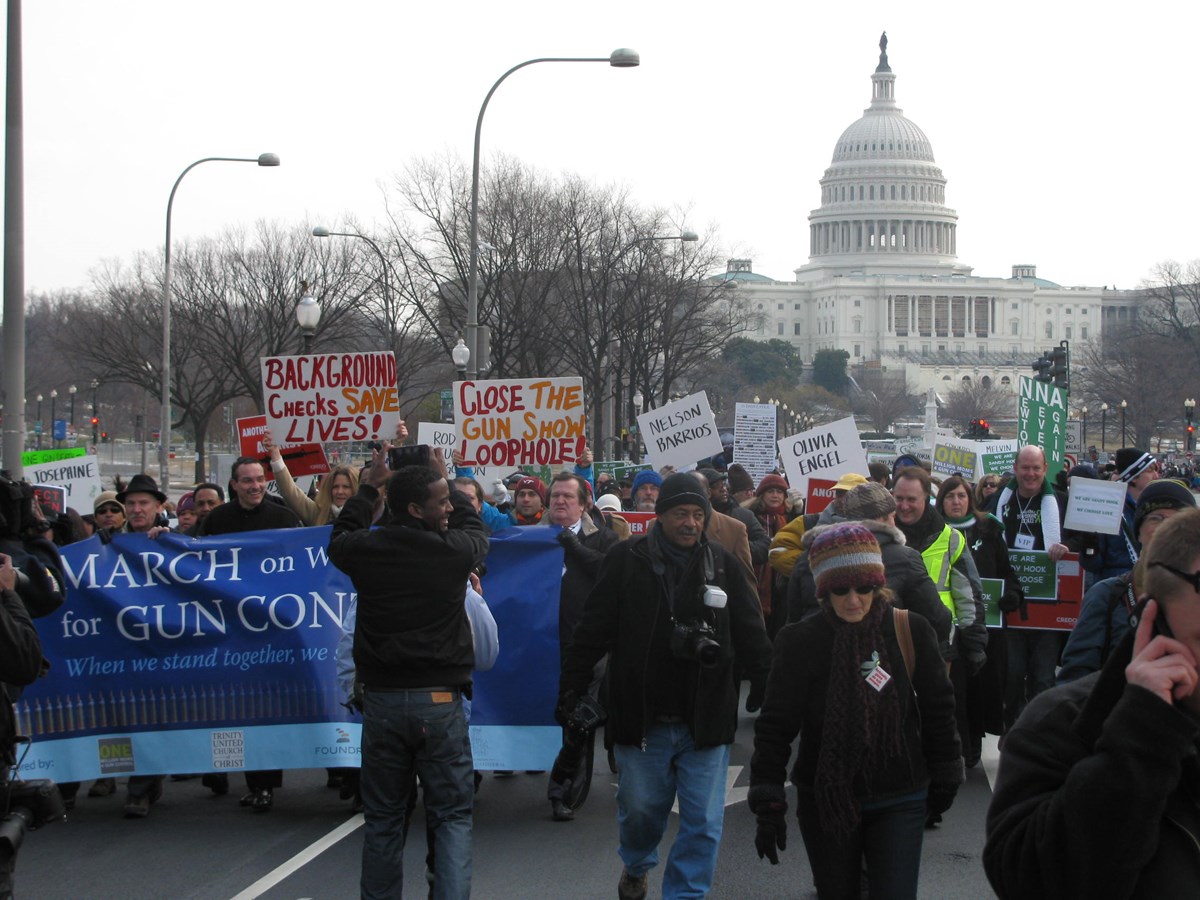The Violence Against Women Act (VAWA) reveals the imprudence of using a bill as a vehicle for other agendas.
On April 4, VAWA (HR 1585) was reauthorized by a mostly party-line vote of the Democrat-dominated House. In the past, VAWA has enjoyed bipartisan support, but the current version will not be warmly received by the Republican-dominated Senate. The legislation includes precedents on an issue that sharply divides the two parties: gun control.
VAWA's History
VAWA was first enacted in 1994 to support criminal justice efforts involving domestic violence (DV). Each reauthorization has added controversial provisions that broaden VAWA’s reach. This makes critics accuse the Democrats of using women’s safety to promote other causes. Introducing the subject of firearms in HR 1585 may be understandable, however, because guns play a role in DV. But it is not clear what that role is or should be. HR 1585’s answer is gun control. Gun advocates want people to use firearms in self-defense instead.
Whatever people think about firearms, important legal and constitutional issues deserve to be debated in their own right. They should not be enacted as add-ons to other bills.
One problematic provision concerns restraining orders. Currently, subjects of permanent restraining orders are denied gun ownership.
Which HR 1585 provisions impact gun rights? The media lingers on the “boyfriend loophole,” which is the most reasonable-sounding firearms measure. Current DV law applies only to partners who share a child or have lived together. HR 1585 specifies that a dating partner convicted of abuse will be prohibited from owning guns. Focusing on the boyfriend loophole, however, diverts attention from more significant measures. (Note: the word “boyfriend” is unfortunate as women also shoot or abuse their partners.)
One problematic provision concerns restraining orders. Currently, subjects of permanent restraining orders are denied gun ownership. A plaintiff petitions the court, which tends to issue warrants generously because, if a denied plaintiff is later attacked, it reflects badly on the judge. Typically, the subject is served with paperwork, and a hearing is scheduled, with a temporary or ex parte restraining order in effect until then. At the hearing, the subject defends himself or herself, and the judge determines if a credible threat to the plaintiff’s physical safety exists. If so, the subject loses gun rights.
Loss of Gun Ownership
Under HR 1585, an ex parte order prohibits gun ownership. Section 101 ensures:
[T]he lawful recovery and storage of any dangerous weapon...from an adjudicated perpetrator of any offense of domestic violence, dating violence, sexual assault, or stalking, and the return of such weapon when appropriate, where any...court has—
(A) (i) issued protective or other restraining orders against such a perpetrator; or
(ii) found such a perpetrator to be guilty of misdemeanor or felony crimes of domestic violence, dating violence, sexual assault, or stalking; and
(B) ordered the perpetrator to relinquish dangerous weapons that the perpetrator possesses or has used in the commission of at least one of the aforementioned crimes.
HR 1585 includes the words “ex parte” elsewhere. A subject’s gun rights are negated without notification, a hearing, or a right of appeal—without due process. Moreover, ex parte orders are generally renewable.
Federal gun prohibitions currently apply to DV misdemeanors that involved physical force, attempted force, or a deadly weapon. HR 1585 extends the prohibition to non-violent DV misdemeanors. The definition employed is “a pattern of behavior involving the use or attempted use of physical, sexual, verbal, emotional, economic, or technological abuse or any other coercive behavior committed, enabled, or solicited to gain or maintain power and control over a victim.” [Emphasis added.]
Nonviolent and common behavior can result in the loss of gun ownership.
Economic, Verbal, and Technological Abuse
Consider economic abuse. According to HR 1585,
economic abuse refers to behaviors that control an intimate partner’s ability to acquire, use, and maintain access to money, credit, ownership of assets, or access to governmental or private financial benefits, including defaulting on joint obligations (such as school loans, credit card debt, mortgages, or rent).
The sweeping and vague definition would include people who cannot pay their part of a joint mortgage or who place a partner on a budget.
Consider verbal or technological abuse. HR 1585 defines it as “unwanted, repeated telephone calls, text messages, instant messages, or social media posts” that intimidate. It is only mild hyperbole to say that half of Twitter could lose access to gun ownership.
Instead of open debate on firearms, HR 1585 smuggles in prohibitions.
Women's Safety
Then attention is distracted by launching emotional ad hominems at anyone who objects. HR 1585 advocates accuse gun proponents of brutal indifference to women’s safety. Meanwhile, National Rifle Association spokeswoman Jennifer Baker declares:
The NRA opposes domestic violence and all violent crime, and spends millions of dollars teaching countless Americans how not to be a victim and how to safely use firearms for self-defense. It is a shame that some in the gun-control community treat the severity of domestic violence so trivially that they are willing to use it as a tool to advance a political agenda.
What now? Senators Dianne Feinstein (D-CA) and Joni Ernst (R-IA) are preparing a Senate version that presumably excludes or softens the gun control add-ons. If passed in the Senate, it is not clear that the House will accept it. If accepted by the House, it is not clear that President Trump will sign it.
Victims of DV, like me, are left wondering why VAWA does not simply address violence against women. Or violence against men, for that matter.

